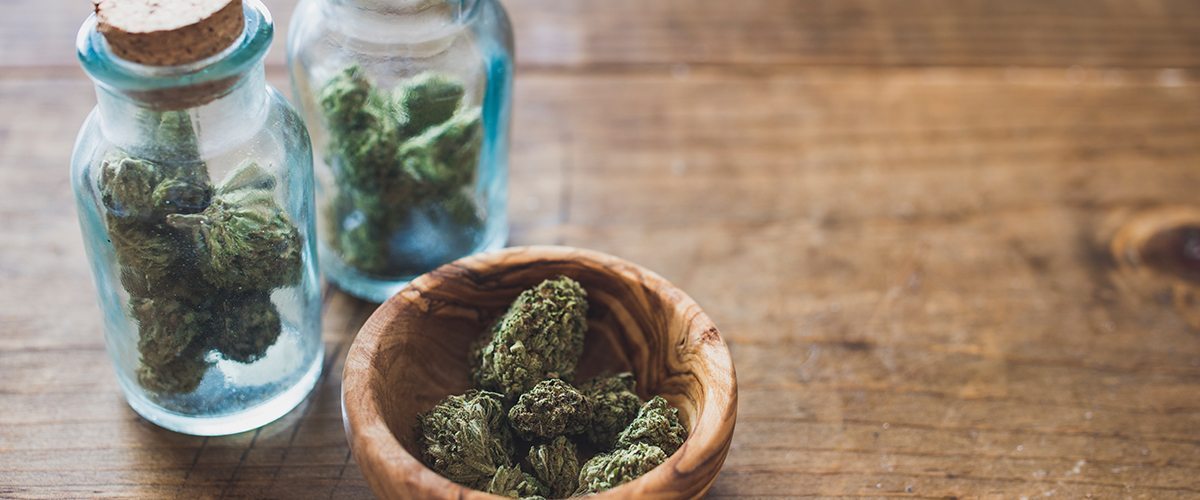[vc_row][vc_column][vc_column_text]
Judge Neil Gorsuch, President Donald Trump’s nominee for the Supreme Court, has ruled on at least three marijuana-related cases.
President Donald Trump last week nominated Colorado-based federal judge Neil Gorsuch to fill the Supreme Court’s open seat. With support for adult use marijuana at an all time high and legalization expanding throughout the U.S., the judge that is eventually confirmed by the Senate for the Supreme Court could make a significant impact on federal marijuana policy.
So it’s worth investigating: What are Judge Gorsuch’s thoughts on marijuana legalization?
As a conservative federal judge on the 10th U.S. Circuit Court of Appeals in Denver, Judge Gorsuch has ruled on cannabis-related cases at least three times.
First, in U.S. v. Daniel and Mary Quaintance in 2010, Gorsuch ruled against a couple that had argued their federal marijuana distribution offenses should be dismissed on religious grounds. He believed the defendants to be insincere in their claim that marijuana is a deity and sacrament among members of the Church of Cognizance.
“After taking extensive evidence, the district court denied the motion to dismiss,” Gorsuch said in his ruling. “It held, as a matter of law, that the Quaintances’ professed beliefs are not religious but secular. In addition and in any event, the district court found, as a matter of fact, that the Quaintances don’t sincerely hold the religious beliefs they claim to hold, but instead seek to use the cover of religion to pursue secular drug trafficking activities.”[/vc_column_text][/vc_column][/vc_row][vc_row][vc_column][vc_single_image image=”17394″ img_size=”1200×250″ onclick=”custom_link” img_link_target=”_blank” link=”https://www.medicalmarijuanainc.com/report-u-s-legal-cannabis-market-growing-faster-dot-com-boom/”][/vc_column][/vc_row][vc_row][vc_column][vc_column_text]Second, in 2013 in Family of Ryan Wilson v. City of Lafayette and Taser International, Gorsuch ruled that a Colorado police officer’s use of a Taser that ended up taking the life of a man fleeing a marijuana arrest was justified. While acknowledging that “illegal processing and manufacturing may not be inherently violent crimes,” Gorsuch concluded that the officer is trained to think otherwise.
“… [The illegal production and distribution of marijuana] were felonies under Colorado law at the time of the incident. And Officer Harris testified, without rebuttal, that he had been trained that people who grow marijuana illegally tend to be armed and ready to use force to protect themselves and their unlawful investments.”
Third and most recently, in Feinbert et al. v. IRS in 2015, Gorsuch ruled against owners of a Colorado dispensary who refused to turn over tax data to the Internal Revenue Service for fear of self-incrimination.
Although Gorsuch noted that the conflict was partially the fault of the “mixed messages the federal government is sending these days about the distribution of marijuana,” he ended up siding with the IRS, which argued that “the petitioners should be forced to divulge the requested information anyway.”[/vc_column_text][/vc_column][/vc_row][vc_row][vc_column][vc_single_image image=”17313″ img_size=”1200×250″ onclick=”custom_link” img_link_target=”_blank” link=”https://www.medicalmarijuanainc.com/education/#cannabis-legality”][/vc_column][/vc_row][vc_row][vc_column][vc_column_text]Gorsuch’s rulings in the three cases fail to give a clear picture of his stance on cannabis legislation, although his ruling in Family of Ryan Wilson v. City of Lafayette and Taser International indicates he believes the gap between federal and state marijuana laws is unsustainable.
While Gorsuch has yet to publicly voice his views on the legalization of marijuana, he is a native of Colorado, the very first state to legalize recreational marijuana. He currently lives in the cannabis-friendly college town of Boulder.
One of Gorsuch’s former students, according to the Joint Blog, claims that when Gorsuch was once asked on whether he supports legalization of marijuana, the judge responded by saying that he “at the very least” supports in states regulating marijuana. If true, Gorsuch’s stance would align more or less with Trump’s, who has said in the past he is in favor of allowing states to decide on whether to legalize medical and recreational marijuana.
The Supreme Court has had a vacancy since the passing of former Justice Antonin Scalia in February 2016. The Court has since that time been operating with eight rather than nine Justices, leaving it open to voting stalemates. The New York Times placed Gorsuch between Justice Clarence Thomas and Scalia on the spectrum of Supreme Court ideology.
There isn’t much out there to predict how Gorsuch will handle marijuana legalization going forward, but Alex Kreit, director of the Center for Law & Social Justice at the Thomas Jefferson School of Law, told Vice News that there aren’t any red flags that cannabis advocates should be concerned about.
“There isn’t anything in his record that suggests he is a hardline anti-marijuana, pro-mandatory minimum zealot in the mold of Jeff Sessions — at least not that I’ve seen,” Kreit said. “And there are at least some cases that suggest he’s willing to rule in favor of individual rights and against the government in some criminal justice cases.”
There are currently 28 states that have legalized medical marijuana and eight that have passed recreational marijuana legislation. Cannabidiol (CBD) hemp oil is federally legal and available to purchase and use in all 50 U.S. states. Learn more about the cannabis laws in the U.S. by visiting our education page.[/vc_column_text][/vc_column][/vc_row]






